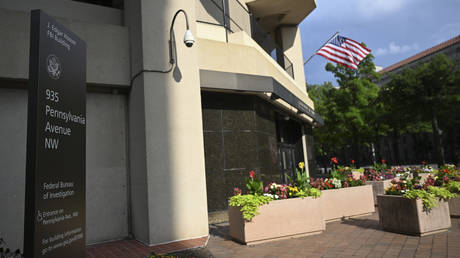England Swings: Post-Election Fallout

David Lammy, the UK’s new Foreign Secretary, who made sure to mention in his very first speech in the post that he is “a descendant of enslaved people.” (Image source; UK Parliament website)
2,607 words
England swings like a pendulum do.
Bobbies on bicycles two by two.
Westminster Abbey, the tower of Big Ben.
The rosy red cheeks of the little children.
— Roger Miller, “England Swings”
And so, as they say, it begins. Labour’s predicted landslide in last week’s United Kingdom general election proved to be just that, with the party winning 412 seats out of the parliamentary total of 650. It is the second-largest Labour majority in history in a general election which had the second-lowest voter turnout (a pathetic 52%) in that same history. Sir Keir Starmer became Prime Minister of a country in which 80% of the electorate did not vote for him in the same week that the English national football team advanced to the semi-finals of the European Championships by playing what has to be some of the worst football since the game was invented. It has been a strange week for the old country.
The Conservative Party were not wiped out — this was not Canada in 1993, when their Conservative Party won just two seats — but they were heavily beaten given the 80-seat majority Boris Johnson commanded in the 2019 ballot. Many political observers believe that stabbing Johnson in the back and dismissing him as party leader (and therefore PM) over his breaking of COVID lockdown rules was a serious error of judgment. It was Rishi Sunak, the outgoing Tory PM, who led the cabal that ousted Johnson, and although Sunak retained his seat in Parliament, his colleagues are not likely to be amused at the scale of defeat. He may find himself shunned by his erstwhile allies.
His party seem to have learned nothing. None of the four frontrunners for the vacant Conservative leadership is a white man. Dominant Labour, in contrast, will be looking to consolidate their powerful position and build a government to last well into the next decade. This means they are unlikely to want to stop or even control immigration, as the new arrivals form an ever-increasing voting bloc. This is, of course, exactly what is happening in the United States, although global geography dictates that Democrats are importing mostly Latinos rather than Muslims. This tactic, reminiscent of Bertolt Brecht’s ironic suggestion in his satirical poem “Die Lösung” (The Solution) that the government needs to elect a new people, is a very dangerous tiger for Starmer’s people to try to ride, as a continuing Labour vote by Muslims cannot be guaranteed. Islam is very organized when it comes to politics at a grassroots level, and Muslims are now becoming an increasingly bullish presence in Westminster as the political landscape becomes ever more Balkanized. They do not have the UK’s welfare at heart, and Labour are on what cricketers call a “sticky wicket” over Palestine and Gaza.
One thing has to be made clear. White male American readers, one of which you almost certainly are if you are reading this (although not forgetting those ladies wise enough to read Counter-Currents), are getting wearily used to the anti-Americanism of some of their fellow Americans. Your flags are not just being burned in Tehran now, but on main streets of major US cities. Anti-Britishness has even begun to be mentioned in the right-of-center UK media, but that is misleading. When it is said that there is “anti-British feeling,” what is meant is anti-Englishness. I called this piece “England swings,” and of course it was a British election. But England has always been center stage in the drama of Britannica. The UK is a league of nations, but its legacy media despise England, and so do the British Left.

You can buy Mark Gullick’s novel Cherub Valley here.
Labour have also painted themselves into an affirmative action corner, as in the US, where a similar race- and gender-based ideological straitjacket has led to the appalling possibility of Kamala Harris becoming the leader of the free world. In the new UK cabinet, for example, David Lammy is a black man who has just been given one of the biggest portfolios in British politics — the office of Foreign Secretary — purely because of his skin color. This is the opening to a short speech Lammy made after his appointment: “It is the honor of my life to stand before you as Foreign Secretary, a descendant of enslaved people.”
It took Lammy all of six seconds to play the first race card of his new job, and it is unlikely to be the last. Also, it is to be hoped that Lammy has brushed up on his history since he made an appearance on quiz show Celebrity Mastermind. He scored a feeble total, and among the answers he offered were his belief that the English King who succeeded Henry the Eighth was Henry the Seventh, and that the Marie who won the Nobel Prize for physics in 1903 for her discovery of radium was Marie Antoinette. There were more French mistakes when Lammy was asked which Parisian tower went on to be used as a prison. That would be the Bastille, sir, not Versailles as you suggested. General knowledge is obviously not the man’s strong point, but at least we know that he is descended from slaves. He does not, to put it mildly, inspire confidence on the international stage.
Take his first diary appointment, which was a visit to Germany. A friend of mine works for The Times of London, and texted me from the sub-editors’ desk last weekend as the next edition was being put together:
David Lammy, the new foreign secretary, has made his first overseas trip to meet his counterpart in Berlin. Germany’s foreign office said: ‘We are working with the new UK government to see how the UK can move closer to the EU. [My friend’s emphasis.]
His first week in the job, and not only is Lammy letting the German foreign office speak for the British Foreign Office, but what was said is blatant propagandizing for the European Union. Labour will almost certainly want to take Britain back into the EU, and if Starmer succeeds in that, it will be the most blatant disregard of Britain’s democratic principles in living memory, nullifying the result of the Brexit vote. So, despite the lack of any substantial policy difference between the Tories and the Labour Party during the election campaign, Starmer has the keys to Number 10 now. The incoming government is not going to be a simple case of “Meet the new boss, same as the old boss.”
The Conservative Party had 14 years in which to stabilize British conservatism and they did no such thing. In fact, they governed very much like a liberal/socialist party. All of the central pillars of the world’s oldest political party were torn down. The Tories are supposed to be the party of low taxation, yet income tax is at its highest level since the Second World War. They pledged during every general election campaign since 2010 to cut immigration figures drastically, but instead net migration rose steadily, and the record daily number of immigrants arriving on small boats on the Kent coast is regularly being broken. Despite the Brexit vote, the country remains tethered to the European Convention on Human Rights, which means legal challenges to deportations can suspend them indefinitely. The Tories were famously the party of law and order, yet crime figures also rose consistently.
The British electoral system likewise came under scrutiny once more. Britain has the so-called “first past the post” system, and an Electoral College similar to that of the US. The major flaw in this is that parties can have an impressive share of the total vote nationwide without it translating into seats in Parliament. This is exactly what happened to Nigel Farage’s Reform UK, who got 14% of the vote nationwide but won only five seats. The Liberal Democrats, on the other hand, received 600,000 fewer votes than Reform but won 71 seats. It is still a good result for Farage, and he was himself finally elected to Parliament at the eighth attempt of his career. He made it clear that his party is finding its feet, and he is actually looking ahead to fighting the next general election — in 2029 at the latest. He has also said Reform are “coming for Labour,” and Farage will be a gadfly at Westminster, probably a better one-man opposition to the behemoth that is currently the Labour Party than the badly-beaten Conservatives.
Proportional representation (PR), whereby seats at Westminster are allocated according to overall national vote share, is the alternative, but the British public already voted against that in a 2011 referendum. The problem with PR is that it jeopardizes representation by Members of Parliament who are actually from the regions they sit in the House of Commons to serve. I have met two British Conservative MPs, and both were born and raised in the areas they represented. Loyalty to one’s own people and area is a key element of political representation, and PR would mean that more outside candidates would be “flown in” to seats they have a better chance of winning than their own, thus potentially severing that loyalty. Nigel Farage himself is representing the coastal town of Clacton, but he is not from there. He has stressed that “first past the post” is injurious to small parties, and tends to maintain the two-party system, so this is a knotty problem.
Reform were described by Farage as a “start-up party,” and have only been in existence for a few weeks, so it was still an impressive result. But four Muslim MPs were also elected to Parliament as independents, and this guarantees that the Gazan conflict will never be out of the political spotlight, wasting Parliamentary time and justifying the mob rule seen on Britain’s streets every weekend. Keir Starmer will also have to serve two masters, as the Jewish lobby will be watching closely to see if Labour have purged themselves of their anti-Semites, and the Muslim caucus will be expecting Starmer to distance himself from Israel. The new Prime Minister’s Jewish wife and stated intent to raise their children in the Jewish faith has already caused problems with Starmer’s public image in the eyes of British Muslims.
Then there is the so-called “woke” thinking that has infected both culture and education. It is very unlikely that Labour will be doing anything to counter this; quite the opposite, so it is to be expected that even more professional people will be fired for “misgendering” those individuals who think they are a different sex than the one nature assigned them at birth. It has been claimed that more people are being arrested annually in Britain for online “hate speech” than the comparative figure in Russia. Muslims are not, of course, overly keen on LGBTQ culture, and there will be pileups at the intersection before long.
There has been plenty of predictable talk of a “new dawn” in British politics, but it is looking increasingly as though it will be a red dawn as Britain moves in the opposite direction to Europe, which is seeing a resurgence of Right-wing parties — or “the far Right,” as the media like to put it.
Finally, just as it has long been suggested that Obama is effectively enjoying a third term in office in the US as the éminence grise behind the visibly failing Biden, so too the specter of Tony Blair is lurking behind the Westminster throne. It is very likely that Starmer’s government will be a continuation of Blairism, and Starmer personally is even further to the Left than Blair. He is also a blatant globalist. Asked by a reporter whether he preferred doing business at Westminster or Davos, he chose the home of the World Economic Forum. Starmer joined the Labour Party at the age of 16, just after he was at school with me (I can finally say I schooled with the PM). He was at one time a Pabloite, a school of political thought which began as an offshoot of Trotskyism. Aged 24, Starmer wrote the following in the magazine Socialist Alternatives:
[W]e would be better to go forward to re-build and develop the party as an instrument of socialism, capable of integrating into its project the emergence of the new social movements of the last twenty years.

You can buy Jonathan Bowden’s Extremists: Studies in Metapolitics here.
This was almost 40 years ago, and politicians grow older and (one hopes) wiser, but veteran political journalist Peter Hitchens makes a good point about Starmer’s political roots. Hitchens himself was a Trotskyite in his youth, but he admits to the fact, whether prompted or not. There is absolute radio silence in the British media on the subject of Starmer’s Pabloite past.
The lyrics from a 1960s pop song at the head of this piece sound rather different today. England certainly has swung like a pendulum, but you won’t be seeing many “bobbies [British policemen] on bicycles.” They are more likely to be found dancing at Pride marches or bullying English patriots who are draped in the Cross of St. George. Westminster Abbey is unlikely to be visited by the new Muslim MPs next door in the House of Commons, and the tower of Big Ben (which is actually the name of the famous bell) was recently lit up with the message, “From the river to sea.” As for the children with rosy red cheeks, Muslim “grooming gangs” are still allegedly operating with impunity, so today’s British children are on the at-risk list.
Two big unknowns will decide how long Starmer’s honeymoon period lasts. Rishi Sunak is rumored to have said, concerning what looked like an ill-judged decision to call a snap election in June rather than wait for November, that he “didn’t want to be a wartime leader.” This sounds ominously as though the proxy war the West is already fighting against Vladimir Putin may become an official conflict. Perhaps the press should ask the Berlin foreign office what our new Foreign Secretary thinks about this eventuality.
The second unstable element is the economy, which the media would rather people didn’t notice. As in the US, inflation spiked in the UK, levelled off, and dropped, but still to a level higher than it was. If the head cold of a recession were to worsen and become the full-blown influenza of depression, Britain is not well placed to shake off the effects of all that money-printing. As everyone except governments seem to know, you can’t live on credit forever.
So, Britain is about to discover the joys of socialism, but not the version beloved by Britain’s most famous socialist writer, George Orwell. The Pride flag may fly on government buildings, but it could soon be replaced by the Red Flag. The next few years will feature tax-and-spend policies on a grand scale with increasing debt as the result, more government rather than less, with transvestites and Muslims co-existing uneasily at its highest levels, and more Stasi-style surveillance of ordinary people than ever before. Starmerite socialism will also find space for crony capitalism, which is not going away and does not make for a genuine free market. And Labour will certainly not fight against the literal and cultural desecration of British history. Then there are the volatile global conflicts in Ukraine and Gaza, quite possibly to be joined by a third if China finally decide to make their move on Taiwan. With a buffoon for a Foreign Secretary, Labour will struggle with world politics. And when the full flush of power fades, Sir Keir Starmer might find life at the top a little hotter than he might have hoped.

